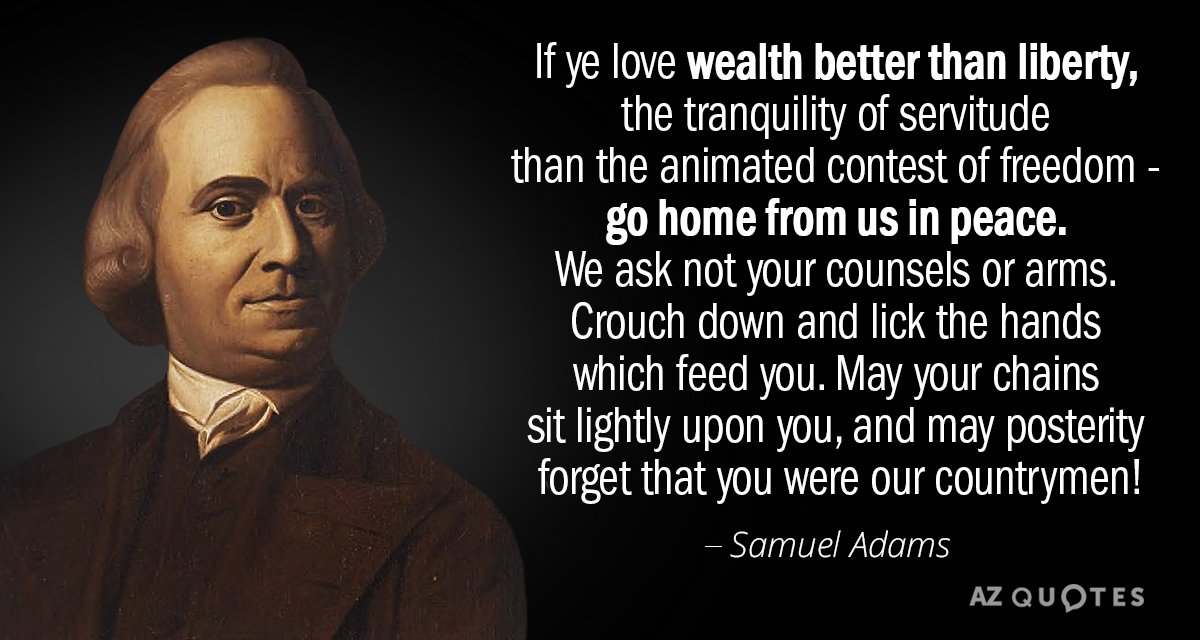It looks like you're using an Ad Blocker.
Please white-list or disable AboveTopSecret.com in your ad-blocking tool.
Thank you.
Some features of ATS will be disabled while you continue to use an ad-blocker.
share:
a reply to: ADVISOR
Curious about your location and the individuals involved, because I suspect that your case may be the exception not the standard.
What's your input on the strangled economic growth we see?
Exception maybe....Rocky Mt. upscale tourist mecca.
From my perspective I see people driving expensive cars and spending money like mad at the casinos, dispensaries, beer joints and tourist traps. But I'm not unaware of how many folks are suffering greatly in this economy.
You and I both know how economic down turns are handled by tptb in this country....Thank You For Your Service!!
As much as CNN is detested, this just might be worth watching.
As KGB agent in the United States: 'I was 100% convinced that communism was the right thing'
The CNN Original Series "Secrets & Spies: A Nuclear Game" examines the tenuous global geopolitics during the Cold War through the lens of two notorious double agents: Oleg Gordievsky and Aldrich Ames. The four-part series is airing on Sundays at 10pm ET/PT on CNN
Secrets & Spies
The US is a neo-liberal, capitalist society bordering on pure corporatocracy (via lobbying). There's nothing remotely communist or socialist about it,
the US has the worst workers rights of any developed nation and worse than most third world countries for paId paternity leave.
It's just a dogwhistle phrase used by people who don't know what it means, same way extremists on the US left try and label all right wingers as Nazis.
It's just a dogwhistle phrase used by people who don't know what it means, same way extremists on the US left try and label all right wingers as Nazis.
originally posted by: bastion
The US is a neo-liberal, capitalist society bordering on pure corporatocracy (via lobbying). There's nothing remotely communist or socialist about it, the US has the worst workers rights of any developed nation and worse than most third world countries for paId paternity leave.
It's just a dogwhistle phrase used by people who don't know what it means, same way extremists on the US left try and label all right wingers as Nazis.
We who see this coming like a slow motion train wreck say GET OFF THAT TRAIN, it is headed to communism. Read Marx and you will see these are steps in the path. There is one playbook and the "whatever bastion calls them today" is a step to where we will be if they get their way.
Read "Rules for Radicals" to catch up to where the rest of us are on our scientific approach to their methods. They are using tried and true social practices to get to the long goal of communistic world lead by one leader, or group.
a reply to: AllisVibration
Please, just read some on Marx and you will see it is a necessary step to the ultimate goal. Call it patty cakes and get into the weeds on why, but it is still Communism. They use "gradualism" as the process to cook their "target country".
Please, just read some on Marx and you will see it is a necessary step to the ultimate goal. Call it patty cakes and get into the weeds on why, but it is still Communism. They use "gradualism" as the process to cook their "target country".
a reply to: Justoneman
Boil those frogs, on low.
They'll never know it's coming.
Boil those frogs, on low.
They'll never know it's coming.
The boiling frog is a parable that illustrates an important lesson on how people, events, and a whole society can, by changing slowly over time, transform into something unrecognizable and previously inconceivable. The fable goes like this: if you put a frog directly into boiling water, it will jump right out of the pot…but if you put a frog in tepid water and turn up the heat slowly, it will stay in the water until it cooks to death.
We are those Frogs:
a reply to: Justoneman
I've read Marx (and Lenin) and nowhere in their work do they say to establish a system of government where the state kowtows to private enterprise, systematically destroys class cohesion and tramples on labour rights. That is quite literally the exact opposite of Socialism or Communism or whatever.
Kinda like saying you're a Christian but not really into the Jesus stuff, but really think that Satan guy has some great ideas. The bible is full of praise of Satan after all.
Just nonsensical.
I've read Marx (and Lenin) and nowhere in their work do they say to establish a system of government where the state kowtows to private enterprise, systematically destroys class cohesion and tramples on labour rights. That is quite literally the exact opposite of Socialism or Communism or whatever.
Kinda like saying you're a Christian but not really into the Jesus stuff, but really think that Satan guy has some great ideas. The bible is full of praise of Satan after all.
Just nonsensical.
a reply to: AllisVibration
It's literally the same exact F'n thing yo!
You'd be surprised what facts you can find, when you're not in denial and inducing self ignorance;
It's literally the same exact F'n thing yo!
You'd be surprised what facts you can find, when you're not in denial and inducing self ignorance;
How is communism different from socialism? | Britannica
Exactly how communism differs from socialism has long been a matter of debate. Karl Marx used the terms interchangeably For many, however, the difference can be seen in the two phases of communism as outlined by Marx. The first is a transitional system in which the working class controls the government and economy yet still pays people ...
people.howstuffworks.com...
What's the Difference Between Socialism and Communism?
"'The Communist Manifesto,' published by Karl Marx and Friedrich Engels in 1848, became the foundation of both socialism and communism," says Markowitz, but there are clearly differences between authoritarian communist regimes like the Soviet Union and China, and far more democratic forms of socialism practiced in countries like Sweden, Canada ...
www.britannica.com...
Communism | Definition, History, Varieties, & Facts | Britannica
communism, political and economic doctrine that aims to replace private property and a profit-based economy with public ownership and communal control of at least the major means of production (e.g., mines, mills, and factories) and the natural resources of a society. Communism is thus a form of socialism—a higher and more advanced form ...
How can you tell some one is a Communist? Well, it’s someone who reads Marx and Lenin. And how can you tell some one is anti-Communist?
It’s someone who understands Marx and Lenin.
originally posted by: Ohanka
a reply to: Justoneman
I've read Marx (and Lenin) and nowhere in their work do they say to establish a system of government where the state kowtows to private enterprise, systematically destroys class cohesion and tramples on labour rights. That is quite literally the exact opposite of Socialism or Communism or whatever.
Kinda like saying you're a Christian but not really into the Jesus stuff, but really think that Satan guy has some great ideas. The bible is full of praise of Satan after all.
Just nonsensical.
You're nonsensical;
Pure Socialism: The Government’s Barn
Under pure socialism, your cows are taken by the government and placed in a barn with everyone else’s. While they promise to provide you with as much milk as you need, you’ll be responsible for the collective care of all the cows.
Bureaucratic Socialism: Egg and Milk Regulations
In the world of bureaucratic socialism, your cows are also seized by the government and housed with others. Interestingly, they are looked after by ex-chicken farmers, and you must attend to the chickens the government took from those farmers. The government then provides you with milk and eggs based on strict regulations.
Fascism: Government Takes Control
In a fascist system, the government seizes your two cows, hires you to take care of them, and sells you the milk, profiting from your labor.
Pure Communism: Shared Responsibility
In the realm of pure communism, your two cows are a collective effort. Your neighbors collaborate with you to take care of them, and the milk is shared equally among all.
Russian Communism: Government Takes It All
In Russian communism, you still have to care for your cows, but the government takes all the milk, leaving you with no benefit from your hard work.
Dictatorship: A Grim End
In a dictatorship, your cows are confiscated by the government, and you meet an unfortunate end as they take both your cows and your life.
Militarism: Forced Service
Militarism leads to the government taking your cows and drafting you into service, leaving you with no cows or freedom.
Pure Democracy: Neighbors Decide
In a pure democracy, your neighbors have the power to decide who among them gets the milk from your two cows.
Representative Democracy: Delegated Decisions
In a representative democracy, your neighbors choose a representative to make the decision about who gets the milk from your cows.
American Democracy: The Cowgate Scandal
American democracy promises two cows in exchange for your vote. After the election, a scandal unfolds as the president is impeached for cow-related misconduct, and the cows are set free.
democrats are socialists get over it and stop being in denial
a reply to: ADVISOR
What does this joke have to do with anything?
Point me to a single Socialist policy the Democrats have. Something that is anti-big business, empowers workers and improves things for the working class. I'll wait.
Arguably the majority-populist wing of the GOP is further to the left than the main body of the Democratic Party in 2024. Mostly due to opposition to big tech, BlackRock and unchecked immigration (which exists solely for capitalist interests to devalue domestic labour).
What does this joke have to do with anything?
Point me to a single Socialist policy the Democrats have. Something that is anti-big business, empowers workers and improves things for the working class. I'll wait.
Arguably the majority-populist wing of the GOP is further to the left than the main body of the Democratic Party in 2024. Mostly due to opposition to big tech, BlackRock and unchecked immigration (which exists solely for capitalist interests to devalue domestic labour).
a reply to: Ohanka
One can lead a horse to water, but can't make them drink.
One can lead a person to truth, but can't make them think.
If you can't see the truth on your own, no one can show it to you.
It's not a joke by the way, it's F'n fact jack!
Let's agree to disagree. And if that's not good enough for you;

One can lead a horse to water, but can't make them drink.
One can lead a person to truth, but can't make them think.
If you can't see the truth on your own, no one can show it to you.
It's not a joke by the way, it's F'n fact jack!
Let's agree to disagree. And if that's not good enough for you;

a reply to: ADVISOR
That nasty Communist mentality in our youth began then. But the opine's of us today...we're not experienced by many.
I was at Kent State and a few others. I was one of those that put a flower in your carbine. Also gave a g.i.my fringe at the airport to change cause of all that nonsense against them.
Spiritually changed me. But that's it. Today's youth...even mid agers didn't have to go thru those changes that frankly, changed us.
Call it Communism whatever, that ideology....all twisted things up for the radicals and out....till today.
That's why I say, I saw it take root. Stay well my friend😎✌️***
***Popular book of the 60's "Quotations from Chairman Mao".
editby]edit on 06245730America/ChicagoSat, 08 Jun 2024 12:23:57 -050023202400000057 by mysterioustranger because: (no reason given)
That nasty Communist mentality in our youth began then. But the opine's of us today...we're not experienced by many.
I was at Kent State and a few others. I was one of those that put a flower in your carbine. Also gave a g.i.my fringe at the airport to change cause of all that nonsense against them.
Spiritually changed me. But that's it. Today's youth...even mid agers didn't have to go thru those changes that frankly, changed us.
Call it Communism whatever, that ideology....all twisted things up for the radicals and out....till today.
That's why I say, I saw it take root. Stay well my friend😎✌️***
***Popular book of the 60's "Quotations from Chairman Mao".
editby]edit on 06245730America/ChicagoSat, 08 Jun 2024 12:23:57 -050023202400000057 by mysterioustranger because: (no reason given)
edit on 06244430America/ChicagoSat, 08 Jun 2024 12:25:44 -050025202400000044 by mysterioustranger because: (no reason
given)
a reply to: Ohanka
You need examples?
O'buma care.
How's that for you?
If I have to pay for your abortions, then you have to pay for my ammunition.
Follow the money and look at the policy, and you will see the communism.
Why don't you actually use due diligence and search for yourself. It's not my damn job to think for you. That's your issue.
Sound familiar?
Yeah, that's what everyone is seeing on college campuses today.
History repeats, because ignorance is not denied.
You need examples?
O'buma care.
How's that for you?
If I have to pay for your abortions, then you have to pay for my ammunition.
Follow the money and look at the policy, and you will see the communism.
Why don't you actually use due diligence and search for yourself. It's not my damn job to think for you. That's your issue.
The history of the socialist movement in the United States spans a variety of tendencies, including anarchists, communists, democratic socialists, social democrats, Marxists, Marxist–Leninists, Trotskyists and utopian socialists. It began with utopian communities in the early 19th century such as the Shakers, the activist visionary Josiah Warren and intentional communities inspired by Charles Fourier. Labor activists, usually Jewish, German, or Finnish immigrants, founded the Socialist Labor Party of America in 1877. The Socialist Party of America was established in 1901. By that time, anarchism also rose to prominence around the country. Socialists of different tendencies were involved in early American labor organizations and struggles. These reached a high point in the Haymarket massacre in Chicago, which founded the International Workers' Day as the main labour holiday around the world, Labor Day and making the eight-hour day a worldwide objective by workers organizations and socialist parties worldwide.[1]
Under Socialist Party of America presidential candidate Eugene V. Debs, socialist opposition to World War I was widespread, leading to the governmental repression collectively known as the First Red Scare. The Socialist Party declined in the 1920s, but the party nonetheless often ran Norman Thomas for president. In the 1930s, the Communist Party USA took importance in labor and racial struggles while it suffered a split which converged in the Trotskyist Socialist Workers Party. In the 1950s, socialism was affected by McCarthyism and in the 1960s it was revived by the general radicalization brought by the New Left and other social struggles and revolts.
Sound familiar?
Yeah, that's what everyone is seeing on college campuses today.
History repeats, because ignorance is not denied.
edit on 8-6-2024 by ADVISOR because: (no reason given)
a reply to: ADVISOR
Obamacare does nothing but add additional layer of bureaucracy ontop of the overly byzantine US health system. It's just a pro-market attempt to solve the issues of healthcare. And it's really bad at it. Probably because it's a copy+paste of Romneycare proposed by infamous corporate shill Mitt Romney.
Public healthcare would indeed be a socialist policy though. Albeit one adopted by the rest of the (capitalist) developed world because it's just objectively superior. Unfortunately Obamacare doesn't even take a single step towards that.
Your quote is just a copy+paste of a Wikipedia article. Do you think early labour organisers and socialist activists were bad? I quite like kids not dying mangled in factory machines and women having a higher social status than property, personally. Fixed work hours and minimum wage laws are pretty cool too. Workplace safety standards are kinda chill.
Do you wanna go back to Victorian-era conditions just to own the evil socialists? lmao.
Obamacare does nothing but add additional layer of bureaucracy ontop of the overly byzantine US health system. It's just a pro-market attempt to solve the issues of healthcare. And it's really bad at it. Probably because it's a copy+paste of Romneycare proposed by infamous corporate shill Mitt Romney.
Public healthcare would indeed be a socialist policy though. Albeit one adopted by the rest of the (capitalist) developed world because it's just objectively superior. Unfortunately Obamacare doesn't even take a single step towards that.
Your quote is just a copy+paste of a Wikipedia article. Do you think early labour organisers and socialist activists were bad? I quite like kids not dying mangled in factory machines and women having a higher social status than property, personally. Fixed work hours and minimum wage laws are pretty cool too. Workplace safety standards are kinda chill.
Do you wanna go back to Victorian-era conditions just to own the evil socialists? lmao.
We are on the cusp of some radical "adjustments" and most Americans have zero awareness of what's transpiring. Let that sink in.






